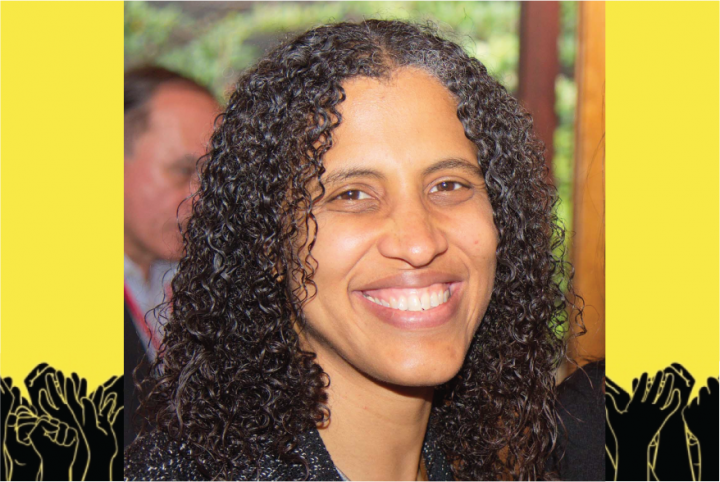Earlier this summer, Dr. Ayodele Thomas spoke to staff in Business Affairs in celebration of Juneteenth. She shared her deeply personal connection to this commemoration of the ending of legal slavery in the United States and celebration of both African-American freedom and achievement.
Thomas is the inaugural Associate Vice President for Diversity, Equity, Inclusion, and Belonging in University HR at Stanford. For more than 30 years, Thomas has been dedicated to developing and implementing strategic, effective diversity, equity, and inclusion (DEI) initiatives inspired by her own experiences as the first Black woman to receive a Ph.D. in electrical engineering from Stanford.
As a longtime member of the Stanford community, Thomas served as the Associate Dean for Graduate and Career Education and Diversity in the Stanford University School of Medicine for four years, where she oversaw academic student affairs for doctoral and master's students through an explicit lens of diversity, equity, and inclusion. She also served in the School of Humanities and Sciences for 12 years as the Assistant Dean for Diversity Programs, Data and Technology.
“My father always reminds me that Juneteenth also celebrates the reunification of the United States after five years of a bitter and bloody Civil War. Therefore, Juneteenth really should be celebrated by all of us who call ourselves Americans today,” Thomas said. “While the 13th Amendment Emancipation Proclamation freed enslaved people from legal slavery, Jim Crow became the law of the land just a few years later. Systemic racism became embedded not just in the cultural norms and beliefs of many Americans, but also in our laws and institutions. And we are still fighting against this systemic and structural racism against Black Americans in our institutions today.”
Taking positive action
Thomas shared her perspective on how we can collectively cultivate a work culture that embraces intersectionality, differences of viewpoints, and respect for one another.
Performative behavior doesn’t activate change; our intentions matter. Courage is required to make sure that good ideas are not just surfaced, but actually implemented in a way that permeates the culture and creates lasting change. Thomas suggested that reflecting on our intentions is important: “How can we accept the fact that every one of us could be doing something in our local sphere in space to create greater inclusion? It's how you greet people. It's the form that you're creating. Are you giving an option for pronouns, if it's relevant? Is our vendor process open to a broad enough community? It's about when you're scheduling things and who you're excluding.”
Leaders must be held accountable for engaging in DEI efforts. Thomas said she was hopeful about the resources from campus leadership for the IDEAL Learning Journey, and that she’d like to see the same expectations set for other competencies on campus used for DEI efforts: “Much like there's an expectation of financial competency for senior leaders, there should be an expectation of cultural competency around diversity, equity, and inclusion,” Thomas said. “I like to say that any meeting where financial issues are discussed regularly is a meeting where diversity and inclusion should be discussed regularly. And if any committee that you put together to address issues of diversity, equity, and inclusion has more people of color than white people, then there's a problem (unless your team is mainly people of color).”
Data is critical, but not the entire picture. “You can't always show every little bit of data, but usually you can find a way to tell a story,” Thomas said. Diversity is directly linked to demographics and can provide quantitative data, but inclusion is harder to measure. Thomas says developing and implementing practices for inclusion is what’s needed to create a sense of community and belonging.
Juneteenth throughout the year
There are opportunities to reflect on the meaning of Juneteenth throughout the year, whether it’s in the workplace, in our communities, or at home. One example is participating in the IDEAL Learning Journey; another is engaging in IDEAL IT activities and events throughout the year.
For additional inspiration, you can look through these virtual spaces created by staff in Business Affairs and the Graduate School of Business with additional resources and suggestions:
For those unable to attend, Thomas’ talk is available online, along with the transcript.


